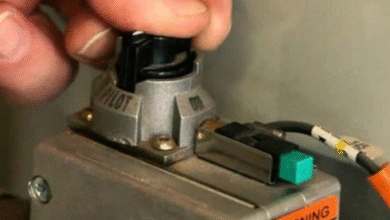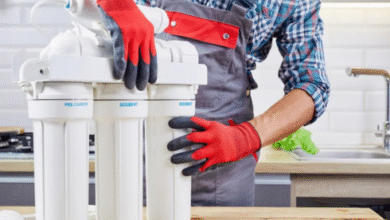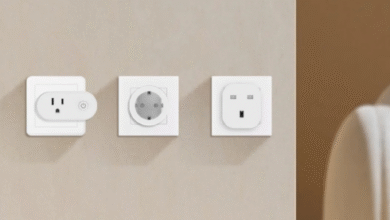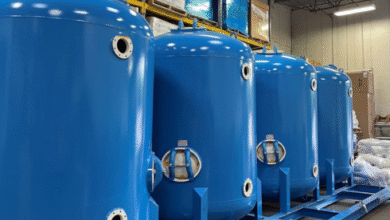
Why Businesses Are Turning to Advanced Water Filtration for Cleaner, Safer Results
If you’ve ever walked through the back area of a restaurant, toured a brewery, or visited a factory floor, you’ll notice one thing that quietly runs the show: water. It’s not glamorous, but it’s the backbone of so many industries. From cooking and cleaning to cooling and product creation, water’s role is far bigger than most people realize. And yet, the quality of that water isn’t always guaranteed. That’s where things like advanced filtration systems come in, bridging the gap between ordinary tap water and the consistently pure water businesses need to operate smoothly.
I’ve seen it firsthand—cafés struggling with scale build-up in coffee machines, or hotels frustrated by mineral stains that seem to appear overnight. The demand for reliable, cost-effective water solutions has been rising quietly in the background, almost like an unsung hero in modern business operations.
The Rise of Smarter Filtration in Everyday Business
Not long ago, smaller businesses didn’t give much thought to water beyond paying the utility bill. Today, though, the landscape looks different. Restaurants want crystal-clear ice, bakeries need consistent water for dough, and gyms are expected to provide fresh, clean hydration stations. A commercial reverse osmosis system has become less of a luxury and more of a practical investment.
What makes these systems appealing is how they strip away the inconsistencies. Chlorine, dissolved solids, even trace contaminants—gone. That consistency isn’t just about taste or appearance; it’s about building trust with customers who expect high standards without even realizing it. After all, nobody sits down at a restaurant and says, “I hope their water filtration is solid,” but everyone notices if the water tastes off.
Why Industrial Needs Go Even Deeper
Move beyond cafés and kitchens, and the conversation gets even more interesting. Large-scale manufacturers, pharmaceutical plants, and beverage bottling facilities can’t just wing it when it comes to water. They rely on what’s known as industrial RO water filtration, which is a step up in both power and precision.
This isn’t simply about taste or clarity; it’s about compliance and safety. In certain industries, regulations demand exact water purity levels to protect consumers and maintain consistent product quality. For example, in pharmaceuticals, even tiny deviations in water composition could compromise entire batches. In food processing, untreated water could threaten both shelf life and safety.
There’s also the machinery to think about. Industrial equipment is costly, and poor water quality can wear it down quickly. Think about scale build-up inside boilers, or corrosion creeping into cooling towers. Investing in a strong filtration system doesn’t just protect end users—it saves businesses from the headache and expense of premature equipment breakdown.
Beyond Function: The Quiet Benefits Nobody Talks About
One of the most overlooked aspects of advanced water systems is the ripple effect they have on daily operations. Cleaner water means brighter laundry in hotels, shinier glassware in restaurants, and fewer complaints from guests about odd tastes or smells. It also means fewer maintenance calls, less downtime, and, ultimately, more predictable operating costs.
I once spoke with a small hotel manager who said switching to a commercial water purification unit felt like “fixing problems we didn’t even realize we had.” Suddenly, linens came out softer, the dishwashers stopped breaking down every other month, and even the staff noticed they weren’t scrubbing stubborn mineral spots off fixtures anymore. It wasn’t flashy, but it was transformative.
There’s also the environmental side to consider. Businesses relying less on bottled water for staff or customers not only save money but cut down on plastic waste. Over time, that adds up—both in terms of budget and in branding, since sustainability is becoming a big decision-maker for consumers.
The Cost Conversation (and Why It’s Worth It)
Of course, no business decision is made without crunching numbers. Advanced filtration systems do come with upfront costs—installation, maintenance, and sometimes training staff to handle them properly. But when you weigh that against the hidden costs of not having one—repairs, wasted product, compliance risks, and unhappy customers—the value becomes obvious.
It’s not about the fanciest technology; it’s about what works best for a company’s scale and needs. A small coffee shop doesn’t need the same setup as a massive food processing plant, but both can benefit from cleaner, more reliable water. The trick is choosing a system that grows with the business, not one that becomes outdated or insufficient in just a few years.
Looking Ahead: A Future Where Clean Water Isn’t Optional
We live in a world where customer expectations keep rising, and industries face tighter regulations every year. Water, as ordinary as it seems, sits right in the middle of that reality. Investing in the right system isn’t just about ticking a box—it’s about ensuring consistency, protecting brand reputation, and making smarter use of resources.
For businesses of all sizes, the trend is clear: water filtration is no longer the quiet afterthought it once was. It’s becoming a cornerstone of quality and efficiency, one that savvy owners and managers are no longer willing to ignore.
So next time you sip a perfectly clear glass of water at a restaurant, or notice the shine on a hotel’s freshly washed sheets, remember—there’s probably a sophisticated system working quietly behind the scenes. Clean water might not be the star of the show, but without it, the curtain wouldn’t rise at all.



